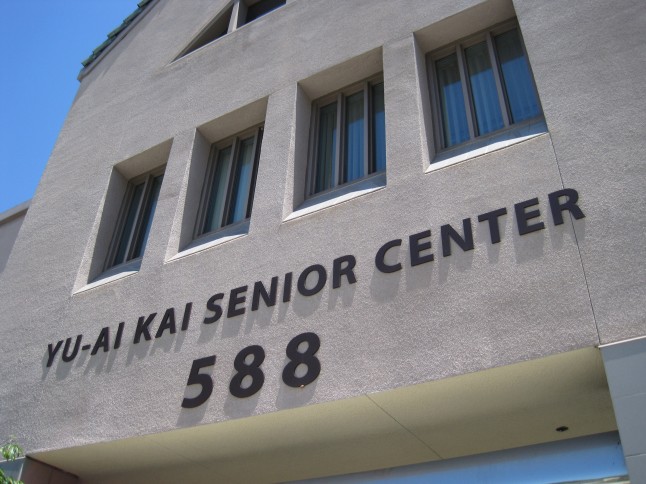San Jose Japantown offers a variety of health and human services to its residents and the general bay area.
West Valley Community Services is a non-profit organization that provides basic needs assistance and referral services to the Santa Clara county, which includes East San Jose. Services include: information and referrals, food, clothing, shelter, affordable housing, financial assistance, and case management.
Yu-Ai-Kai (YAK) Senior Center provides assistance to the elderly portion of the San Jose Japantown community. 80% of its clients are of Japanese descent, 10% are caucasian, and the remaining 10% are of other ethnicities. Yu-Ai Kai offers various services to its seniors, including senior day services(SDS), program that aims to help seniors socialize, exercise, and give their regular caregivers a break. The staff at Yu-Ai Kai are capable of providing assistance in both Japanese and English. Yu-Ai Kai provides nutritional aid and runs a “meals on wheels” program as well. The social services office located in YAK serves to assist senior citizens with any issues they might have, regarding anything from medicare/medicaid to referral and information services. Often times, YAK will refer people to Asian Americans for Community Involvement(AACI) for more specialized care. AACI is one of the largest Asian American service organizations, highly praised for its linguistic capabilities. They offer aid in 12 different languages, making them an invaluable resource to the elderly community. YAK and AACI occasionally refer clients to each others services, in an attempt to better serve the Asian American community.
The Akiyama Wellness Center(AWC), an extension of Yu-Ai Kai, was recently opened in 2010. Its newly renovated facilities serve to promote fitness, wellness education, and support for healthy aging. A variety of classes are offered at AWC, such as Senior Pilates and Zumba.
The Asian Law Alliance (ALA) was started in 1977 by a group of law students from Santa Clara. Their aim was to provide Asian Americans and Asian immigrants with the legal services they needed, which they did by connecting their clients to organizations that could assist them. Eventually, they began taking on cases of their own, ranging anywhere from criminal court cases to family law. However, they felt the need to narrow their focus, and currently they only take immigration, citizenship, and domestic violence cases. They typically service low income clients, especially those of immigrant status. The structure of ALA has not changed since they first began, which is to provide direct legal services, community education(preventative law), and advocacy/community organizing.


